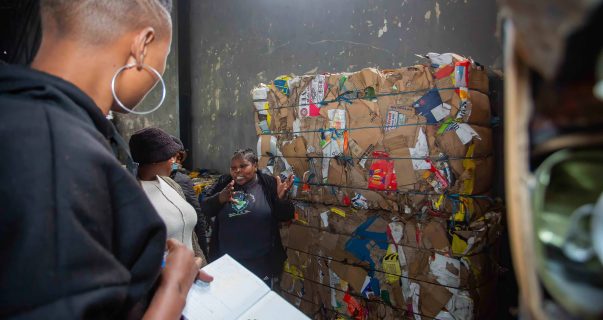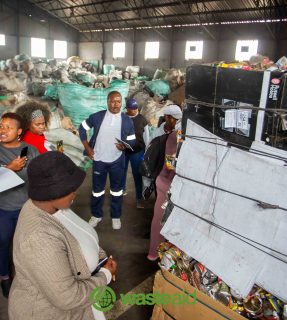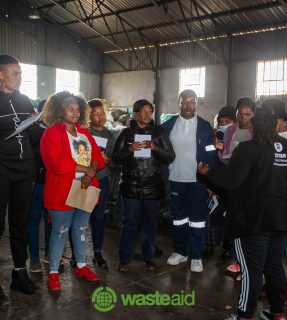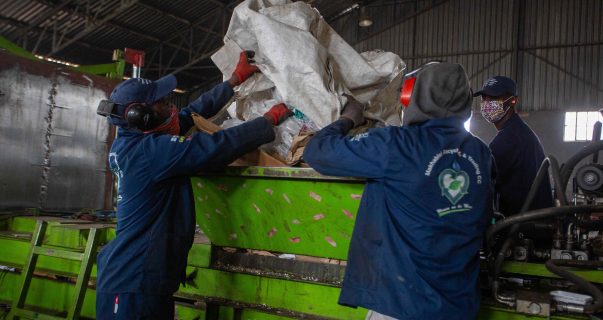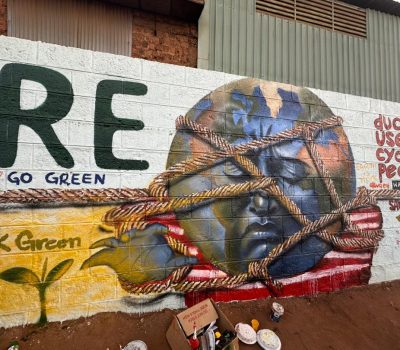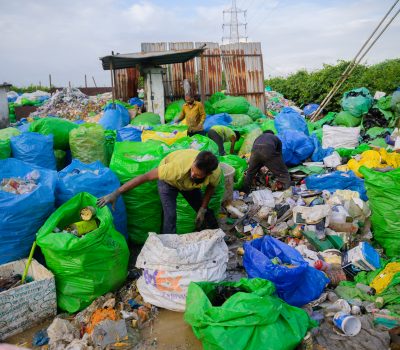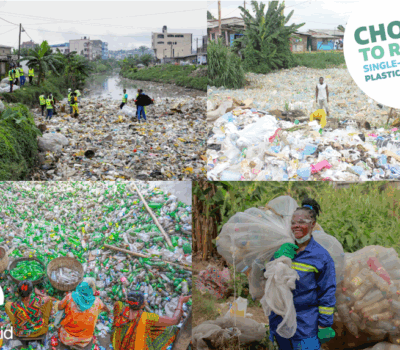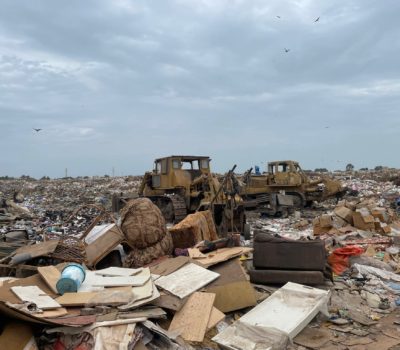First-Step Resource Management: Theory Meets Reality on Inspiring Field Visit
News
Author: Admin
Published: 17 November 2025
A group of First-Step Resource Management participants from Mpumalanga Province recently experienced a powerful day of learning and inspiration, moving beyond the classroom to witness the real-world potential of the waste sector. As part of WasteAid’s intensive training and mentorship program, 30 participants visited the successful Makhabisi Recycling Center in Boksburg, South Africa.
The Power of a Tangible Example
The aim of the field visit was to provide a tangible example of a Buy-Back Centre that started from humble beginnings as waste collectors and scaled into a thriving enterprise. Participants were given a comprehensive overview of the facility’s operations, connecting the theory they learned in training directly to practice.
Cleo Ngulube, Programme Manager for WasteAid, highlighted the significance of the experience:
“The field visit is a powerful part of the WasteAid Wastepreneurs training. It is where theory meets reality. Seeing a Buy-Back Centre run by a WasteAid alumnus was not only inspiring for our participants, but it was also a tangible reminder of what’s possible in the waste sector. For our participants, who are from smaller towns with limited market exposure, I believe this experience opened their eyes to new possibilities and gave them the confidence to dream bigger, while also learning what it takes to turn those dreams into reality.”
From Micro-Scale to Medium Enterprise
The WasteAid program is designed to build the business skills of participants, facilitating community engagement to help them grow viable waste business enterprises. Currently operating at a micro-scale as informal waste collectors, the goal is for the participants to transition into larger, medium-to-large-scale business entities.
The Makhabisi Recycling Center operates as a Buy-Back Centre, a model where community members bring their recyclables to be weighed and are paid for their efforts. This mechanism underscores the value of waste as an economic commodity.
During the visit, one of the hosts emphasised the vital role of waste collectors, whose work is often undervalued by society: “It’s an economic activity that we really don’t see as important, but it is very valuable and it’s very important… the more that they grow, the more that they do such things as the ones that they’ve observed today, then with the society will realise their value.”
Key Takeaways and Future Dreams
The participants were clearly impacted by the visit, gaining both technical knowledge and entrepreneurial inspiration. One participant shared, “I’ve learned how a waste picker should separate at source… If it’s a can, you must separate those cans. If it’s green and brown, you must separate according to their colours.”
Another participant spoke to the power of growth, inspired by Makhabisi’s founders: “The biggest lesson is that you can turn a small thing into a bigger thing… I’ve noted from the founders… that at first they started like collecting waste from their home, going around collecting in schools and in local, but look now like they are owning a well-established entity.”
This inspiration immediately translated into big goals, with a participant stating, “What I’m taking away today definitely has to be: I also like to own a buyback centre in Witbank because there’s a lot of waste in Witbank.” They noted that opening a local centre could help educate the community on the importance of recycling, contributing to a more sustainable and beautiful place to live.
This field visit successfully demonstrated that the waste sector is not just about environmental necessity, but a pathway to sustainable enterprise, job creation, and community upliftment.

